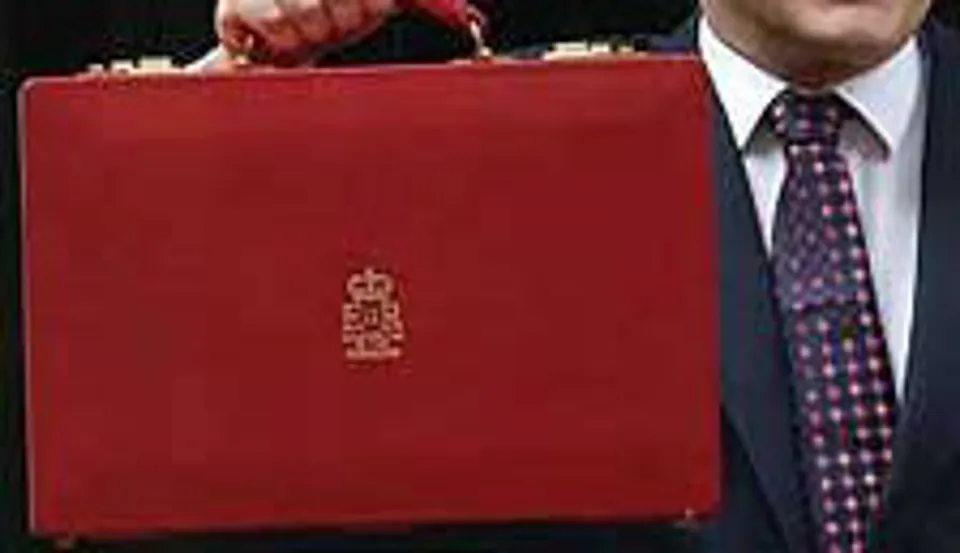Chancellor George Osborne has cut fuel duty by 1p and will introduce a fair fuel stabiliser to replace the fuel duty escalator which was due to be introduced on April 1.
- Download the 2011 Budget in full
- The forecast for the UK’s growth in GDP has been reduced from the previously expected 2.1% to 1.7%. However, Osborne said the UK’s economy would grow by 2.5% in 2012, 2.9% in 2013 and 2014 and by 2.8% in 2015.
- Fuel duty cut by 1 pence per litre. The fuel duty escalator will be replaced with a fair fuel stabiliser that increases tax on North Sea oil production when oil prices are high.
- The April 2011 inflation-only fuel duty increase will be delayed
to January 2012. The April 2012 increase will be delayed to August 2012. The Government will increase the supplementary charge on oil and gas production to 32% from 24 March 2011. - VAT on fuel will not be reduced
- Vehicle Excise Duty will increase by RPI Indexation only in 2011-12 and rates for HGVs will be frozen
- Corporation tax will be reduced by 2%, 1% more than Osborne originally announced.
- £350m of business regulation to be scrapped
- £10m for entrepreneur’s relief
- Ambition to merge income tax and national insurance to help simplify UK tax system. Consultation has started but it's just the first step, it will take "years to reform".
- £250m fund for first time homeowners.
- £100m for pot hole repairs across the UK
- Additional £2bn for Green Investment Bank to help fund environmental projects across the UK
- Approved Mileage Allowance Payments (AMAPs), which are tax-free and paid to employees who drive their own cars and vans on business trips will increase from 40p to 45p for the first 10,000 miles from April 6, 2011 but will remain at 25p per mile thereafter.
- Company car benefit-in-kind tax rates will increase by one percentage point per 5 g/km in 2013-14 with rates for cars emitting less than 95 g/km of CO2 frozen.
- The fuel benefit charge multiplier used to calculate the tax payable on ‘free’ fuel for company cars will increase from £18,000 to £18,800
Industry comment
Sue Robinson RMI director, said: "Announcing that corporation tax will fall by 2% in April and continue to fall till the rate is 20% will be a major boost to businesses."
Robinson said the reduction in fuel duty will give some relief to consumers, which would translate into increased spending power for consumers to use on the high street and to purchase big ticket items like cars.
Robinson said: "Overall we believe this is a positive Budget for the motor retail sector giving support to business whilst helping hard pressed consumers."
"The Chancellor’s plans to encourage growth and investment such as the corporation tax cut are welcome but, if they do have an effect, it will not be for some time. In the immediate future, it will be down to each individual business to ensure that it continues to minimise costs, maximise opportunities and maintain attention on profitability.”
Ken Trinder, head of business development, Epyx, said: "There is little in this fiscally neutral Budget that looks as though it will substantially change that outlook in the short to medium term, despite the ‘feel good’ news on fuel duty.
"Other measures such as increase in the funding of apprenticeships, the setting up of enterprise zones and extension of rate relief for small business will give welcome relief to all businesses. This is in turn will allow increased investment and job creation in the retail motor sector.”
Brian Madderson, chairman of RMI Petrol, said: "RMI Petrol positively welcomes the Government’s decision in today’s Budget to cancel the fuel duty escalator due on April 1.
"With the 1.00ppl headline increase, the Retail Prices Indexation adding 3.00ppl plus VAT at 20%, we predicted that this would have imposed an additional 5.00ppl onto the pump prices of fuel.
“This legacy of the Labour Chancellor, Alistair Darling, who never consulted industry and ignored the plight of the UK motorist, would have had a severe impact on economic recovery at a time that is already one of the harshest that consumers and businesses have had to endure in many years.
“RMI Petrol had recommended that the Government reduce fuel duty immediately to be funded by the windfall tax gains accruing from the 20% VAT rate on higher pump prices. Therefore the news of the immediate 1ppl duty cut has been very well received by forecourt operators and their customers."
Dramatic increases in year-on-year searches for the top five fuel efficient cars on Autotrader.co.uk confirm motorists’ habits have changed as a result of the continued petrol increases. The table below also illustrates how much it costs to drive these cars 15,000 miles now compared to last year.
Adrian Higgins, editor at Auto Trader, said: “Rising oil prices and the increase in VAT have hit motorists hard at a time when they are also having to find cash to cover increasing household bills across the board.
"This has resulted in a real shift in driving behaviours with car sharing on the up and greener driving techniques, such as simply driving more slowly, becoming commonplace.
"As our findings show, a real appetite is developing for fuel efficient vehicles and over the next 12 months as consumer awareness heightens and newer models come to market, we’re likely to see this trend escalate further.
“This demand is hardly surprising given the cost of a tank of fuel has reached eye-watering heights. We’re running a 2-litre Ford Mondeo test car and have seen that cost exceed first £80 and then £90 over the past few months. Scrapping plans to raise fuel duty by one penny a litre may not sound much but it will mean a lot to drivers who are having to penny-pinch on the road and at home.”

Neville Briggs, managing director of Pinewood, said: "The current economic situation means that there is little wriggle room for the Chancellor when it comes to providing a fillip to the motor industry and, despite the Chancellor pulling a rabbit out of the hat on fuel duty, there is really nothing in the Budget that prompt dealers or manufacturers to consider the remainder of 2011 in rosier terms than before, especially considering general factors such as the reduced growth forecast, rising inflation and high unemployment. However, dealers have become impressive since the recession in their ability to exploit almost every opportunity in new cars, used cars and aftersales.
For that reason, many are mildly optimistic about their prospects in the medium term.”
Reg Rix, managing director of Netcars.com, said: "Osbourne delivered a Budget that will no doubt ease the burden for both dealers and motorists alike. The most notable announcement, is the scrapping of the fuel duty escalator and subsequent 4p fuel duty rise due to come into effect next week, alongside the introduction of the 'fair fuel stabiliser', was further heightened by the Chancellor’s surprise move to reduce fuel duty by 1p.
“This decision, coupled with the 2 per cent reduction in corporation tax, will no doubt leave dealers breathing a hesitant sigh of relief as pressures on the bottom line begin to take a small but much needed respite.
“Smaller independent dealerships, particularly those employing 10 staff or less, have received an additional level of support with the announcement that businesses of this particular size will be exempt from all domestic regulations from April this year.
“However, the statement that small businesses will benefit from an additional 15 per cent credit availability from the banks will most likely be met with a mixed response. Although on the surface this appears to be a positive step, whether the banks actually follow through on the promise of delivering additional credit remains to be seen.
“As part of the chancellor’s outlined objective to make the UK’s workforce one of the most educated in Europe, the re-introduction of ‘technical colleges’ across the UK is an interesting development for the motor sector. As an industry which requires a higher percentage of practical qualifications in order to get a foot in the door, this educational shift could see the motoring sector opened up to a much larger number of talented young individuals, currently unable to gain access to the right level of training.
“Along the educational theme, it is also worth highlighting that the Chancellor’s focus on increasing the number of apprenticeships available for young people will fall to the private sector, with dealerships in a prime position to offer sales or aftersales positions. The Government will most definitely be looking at the motoring industry as a whole to help fill the apprenticeship gap and dealers would be wise to take stock and see where a young individual could offer support within their business.
“Dealers should feel positive about today’s Budget announcement, but it’s unlikely that the forthcoming changes will return the industry to its former glory overnight. There is undoubtedly still a long road ahead to complete the recovery.
However, a Budget which is aimed at supporting businesses and encouraging the public to continue spending by reducing day-to-day financial burdens, is most definitely a step in the right direction.”
Ian Simpson, sales and marketing director, The Warranty Group, said: “Used car customer confidence has not improved significantly since the recession and, if you consider the current levels of unemployment and public sector spending cuts, may even arguably deteriorate during 2011.
"While there is some limited help for people on lower and middle incomes in the Budget, there is nothing here that is likely to lead to increased numbers of people feeling confident about buying a used car, especially bearing in mind the Chancellor’s downgraded growth forecast. In this climate, warranty, service plan and asset protection products will continue to see increased levels of popularity as dealers and manufacturers seek to overcome any lack of confidence on the part of the buyer by ensuring that they have credible ‘safety net’ products in place.
It is all about providing the customer with a complete package that provides the peace of mind needed to make a purchase.”














Login to comment
Comments
No comments have been made yet.